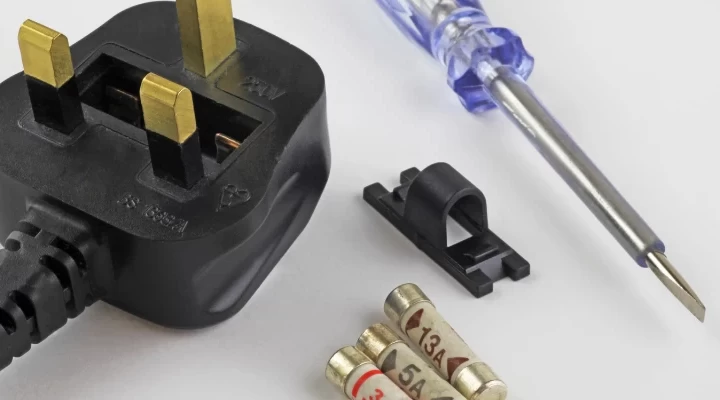Table of Contents
- Gas Safety Certificate (CP12)
- Electrical installation condition report (EICR)
- Portable Appliance Testing (PAT)
- Energy Performance Certificate (EPC)
- Legionella risk evaluation
- Smoke and Carbon Monoxide Alarms
- House of multiple occupation (HMO)
- Conclusion.
- FAQS
- What certificates do landlords need?
- What is a Gas Safety Certificate?
- What is an Energy Performance Certificate (EPC)?
- Where do I put a smoke alarm?
- Who is responsible for obtaining these certificates for a rental property?
- How often do landlords need to renew the Gas Safety Certificate?
- Can a landlord perform the gas safety check themselves?
- What happens if a landlord does not have the required certificates for a rental property?
It is your responsibility to ensure the safety of your tenants when you rent out a property. For the protection of themselves, the tenants, and the property, landlords are legally obligated to get a number of certificates.
Here is a list of some of the most important safety certificates that landlords in the UK usually require.
Please be aware that the necessary certificates can differ between the various UK nations, so you should double-check the laws that are in effect in the area where your rental property is located before taking any action.
If you hire a renting agent to take care of theanagement of your property, you might want to think about asking if they include any of the necessary certificates in their package.

Gas Safety Certificate (CP12)
A Gas Safe-registered engineer's work at your property is documented in a Landlord Gas Safety Record. This work may involve ensuring that all gas appliances, piping, and boilers adhere to safety regulations.
All gas appliances in rental properties must undergo an annual gas safety inspection as required by law. A copy of your Landlord Gas Safety Record documentation, which includes the results of these tests, will be sent to you.
Within 28 days of the gas safety inspection, you must give a copy of your Landlord Gas Safety Record to your present tenants. You must give this to brand-new tenants at the beginning of their tenancy.
On the Gas Safe Register website, you can learn more about your duties as a landlord with regard to gas.
Electrical installation condition report (EICR)
Landlords are required to ensure the electrical safety of their rental properties, and it is advised that fixed electrical installations be inspected by a competent professional, such as a registered electrician, at least once every five years.
An Electric Installation Condition Report (EICR) will be issued by the electrician after inspecting everything from the property's plugs and sockets to the light switches and fuse box.
Either the installation will be deemed safe for ongoing use in the report, or it will identify any necessary immediate repairs or improvements.
A copy of the EICR must be sent to current tenants within 28 days of the inspection and to new renters before they move in.
Landlords are required to give written confirmation of the completion of any remedial work or additional investigation identified by the report to their tenants and the appropriate local authorities.

Portable Appliance Testing (PAT)
The UK government advises that landlords arrange for an electrician to perform routine portable appliance testing (PAT) on any portable appliances, such as a refrigerator, kettle, microwave, or lighting, and provide tenants with a record of any inspections performed.
The electrician will deliver a PAT report that includes a pass/fail label that is clearly visible for each appliance and details the test results. The report will also include the inspector's signature, the date of the inspection, and the deadline for the subsequent test.
Energy Performance Certificate (EPC)
Energy performance certifications rate a building's energy efficiency on a simple scale from "A" to "G," with "A" being the highest level of efficiency and "G" the lowest.
All rental homes must receive at least a "D" rating. Energy performance certificates are still valid for ten years after they are issued, but if you make changes to the property that are likely to have a significant impact on its energy efficiency, such as switching from single to double-glazed windows, you may want to get a new certificate to reflect the updated rating of the building.
See the government's guidance on the minimum energy standards for domestic and non-domestic rental properties for further information.
Legionella risk evaluation
Inhaling germs that can be found in pipes, vents, and air conditioning units can result in Legionnaires' disease, a deadly lung infection.
Before renting out a house, landlords should analyse the risk of legionella bacteria. The Health and Safety
Executive advises landlords to do so for their own needs even though it's not required to document the results of any assessments and actions taken.
Smoke and Carbon Monoxide Alarms.
From October 1, 2022, the Smoke and Carbon Monoxide Alarm (Amendment) Regulations 2022 will go into effect. After that time, each relevant Landlord shall:
- Make sure their properties have at least one smoke alarm installed on every floor if there is a room used as a living space. Since 2015, this has been a requirement for private rental housing.
- Ensure that any room utilised as a living space and equipped with a fixed combustion device has a carbon monoxide alarm (excluding gas cookers).
- As soon as it is discovered that smoke alarms and carbon monoxide alarms are malfunctioning, make sure they are fixed or replaced.
Local governments enforce the rules and have the authority to fine a landlord up to £5,000 for disobeying a corrective notice.
House of multiple occupation (HMO).
A property with shared amenities that is rented by at least three individuals who do not constitute one "household" is known as a house in multiple occupation (HMO). You will need to take into account additional criteria if you wish to rent out your property as an HMO.
Additional certificates for emergency lighting or fire restrictions may be among them. You might need to apply for an HMO licence in specific circumstances.
On the website of the UK government, you may learn more about the conditions for obtaining an HMO licence in England, Wales, Scotland, and Northern Ireland.
You should verify with the local government to determine the precise legal requirements that apply to your rental property and the neighbourhood in which it is located as HMO regulation is a complex subject.
A helpful place to look for information is the government's guide to private renting.
Conclusion.
The Gas Safety Certificate (CP12), Electrical Installation Condition Report (EICR), Portable Appliance Testing (PAT), Energy Performance Certificate (EPC), Legionella Risk Evaluation, and Smoke and Carbon Monoxide Alarms are just a few of the certificates that landlords in the UK are required to obtain to ensure the safety of their rental properties.
These documents are important to comply with the law and protect the renters from potential safety hazards. Landlords should confirm the legislation in their area because the specific certificates needed may differ depending on the UK location.
The certificates can be acquired by the landlord themselves, or they can request that their rental agent include them in their management package at an additional fee. Energy performance certifications, which measure a building's energy efficiency and have a minimum "D" grade requirement, are valid for ten years.
The Smoke and Carbon Monoxide Alarm Regulations, which take effect in October 2022, should also be kept in mind by landlords.
FAQS
What certificates do landlords need?
Landlords need a Gas Safety Certificate, an Energy Performance Certificate (EPC), and a smoke alarm installed in every living room there's a fixed combustion appliance (excluding gas cookers).
What is a Gas Safety Certificate?
A Gas Safety Certificate is a document that shows a property has been checked by a qualified gas engineer and that all gas appliances and flues are safe to use.
What is an Energy Performance Certificate (EPC)?
An Energy Performance Certificate (EPC) is a report that provides information on a property's energy efficiency and recommendations for improvement.
Where do I put a smoke alarm?
Ensure at least one smoke alarm is installed on each floor where there is a room used as living accommodation.
Who is responsible for obtaining these certificates for a rental property?
The landlord is responsible for obtaining the Gas Safety Certificate, Energy Performance Certificate (EPC), and installation of smoke and carbon monoxide alarms.
How often do landlords need to renew the Gas Safety Certificate?
Landlords are required to renew the Gas Safety Certificate annually.
Can a landlord perform the gas safety check themselves?
No, the gas safety check must be performed by a qualified gas safe registered engineer.
What happens if a landlord does not have the required certificates for a rental property?
If a landlord does not have the required certificates for a rental property, they may face fines and legal consequences.
Is an EPC required for all rental properties?
Yes, an Energy Performance Certificate (EPC) is required for all rental properties with a minimum of a "D" rating.






